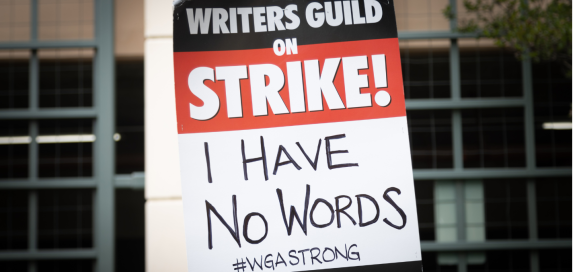Strikes are a common form of protest where employees collectively withdraw their labor to demand better working conditions, higher wages, or other improvements. As you probably already know, the Writers Guild of America (WGA) and the Screen Actors Guild and American Federation of Television and Radio Artists (SAG-AFTRA) are currently on strike – and talks between the respective unions and the Alliance of Motion Picture and Television Producers (AMPTP) are at a standstill.
While strikes primarily affect workers and employers, their ripple effects can also extend to other areas, including taxes. If you’re a worker on strike, you are not alone, and TurboTax is here for you during this unprecedented and uncertain time.
So what is the connection between being on strike and your taxes? When strikes occur, they can interrupt various aspects of the economy, which, in turn, can have indirect implications for your taxes. Businesses may experience financial strain during a strike, reducing profits and, consequently, lowering taxes. Any financial pressure can impact the overall tax revenue collected by the government, potentially affecting public services and government spending. In addition, strikes may result in temporary or permanent layoffs, causing workers to apply for unemployment benefits. These benefits are usually taxable income – and recipients must report them on their tax returns.
Workers who participate in strikes may face specific tax considerations; here are three things you need to know to assist you if you are a worker on strike:
- Loss of income can lower your taxes since your taxable income may be lower.
- Benefits paid by a union as strike or lockout benefits, including both cash and the fair market value of other property, are usually included as part of income, which would be taxable. These benefits can be excluded from income and taxes when the facts clearly show that the union intended them as gifts to you.
- Workers who are not employees but who are independent contractors may be able to deduct fees like union dues or other fees related to union representation; however, under Tax Reform, employees are not able to deduct expenses like union dues since unreimbursed employee expenses are no longer deductible.
If you’re a worker on strike, you are not the only one who could face tax implications. Employers may not pay striking workers – and, as a result, there may be a decrease in payroll taxes withheld and remitted to the government. Employers must ensure compliance with tax laws and report changes in payroll tax obligations during the strike period. In addition, the financial strain on businesses during strikes can also lead to reduced profits and increased expenses.
Don’t worry about navigating your taxes if you were part of a strike. TurboTax is here to help you. At tax time, TurboTax can help you maximize your tax refund or lower your taxes due whether you want to do your taxes yourself or meet with a TurboTax Live Full Service tax expert who can prepare your taxes in one meeting while they do your taxes.

